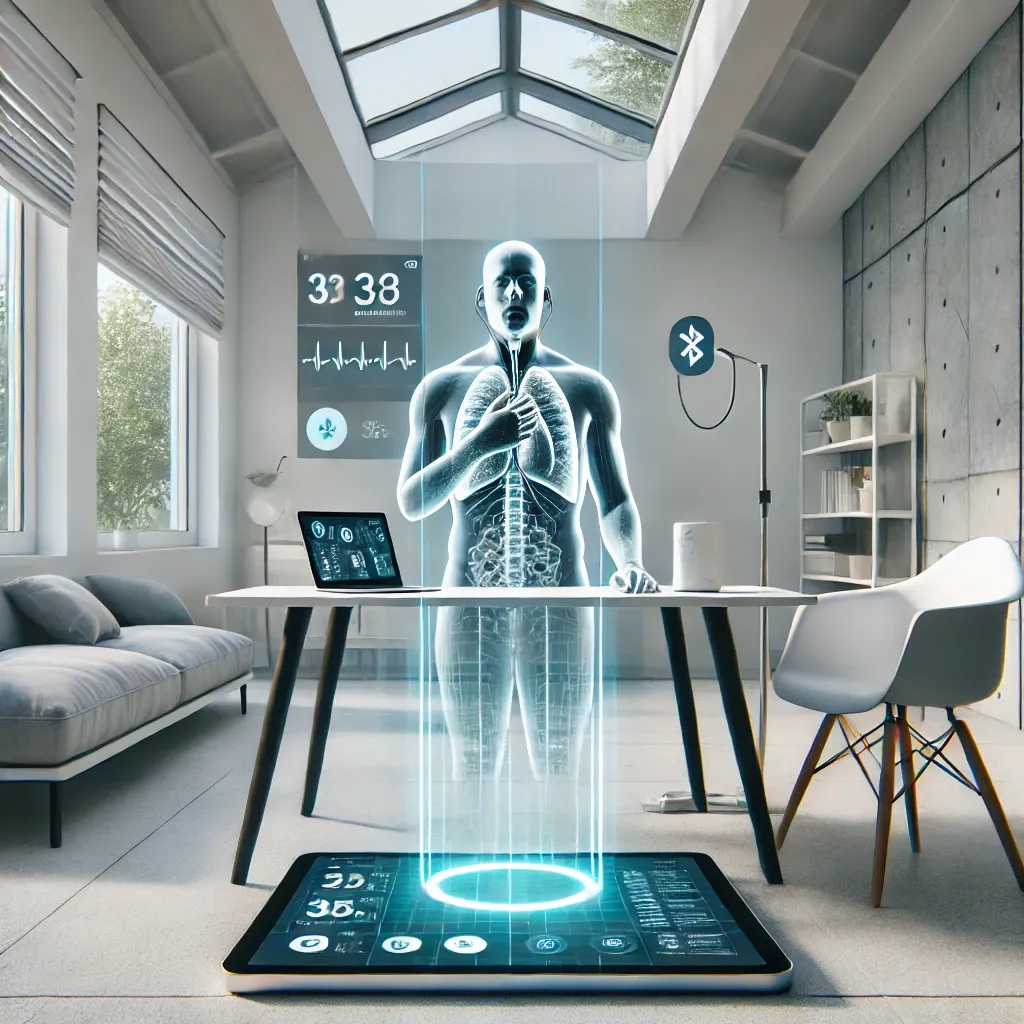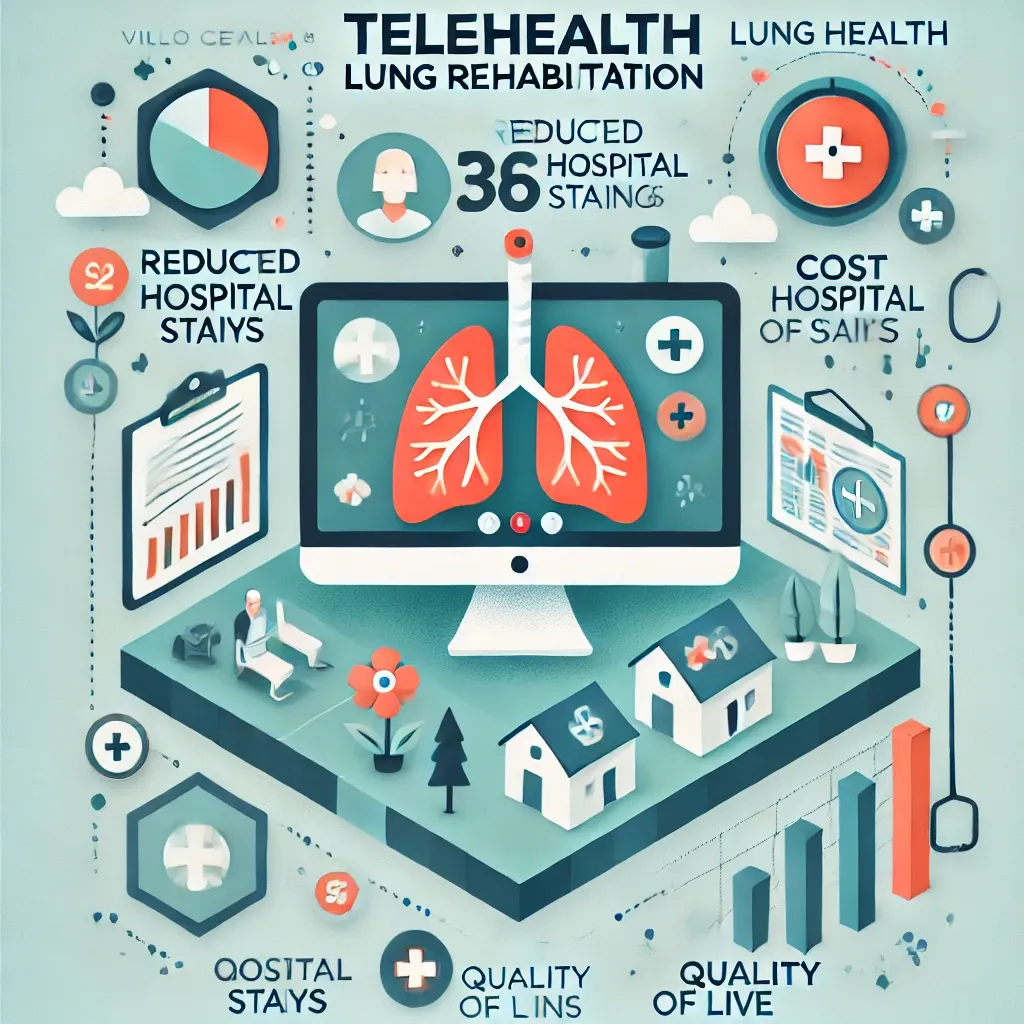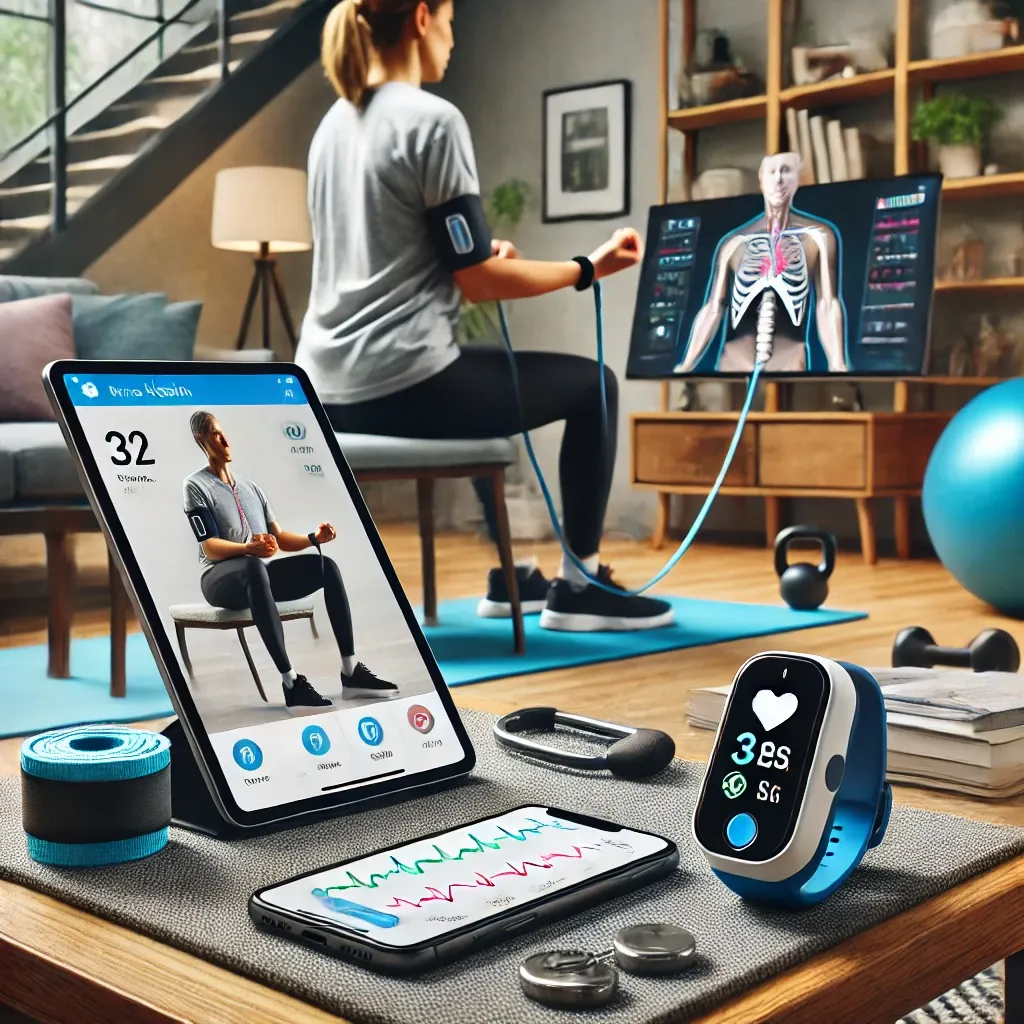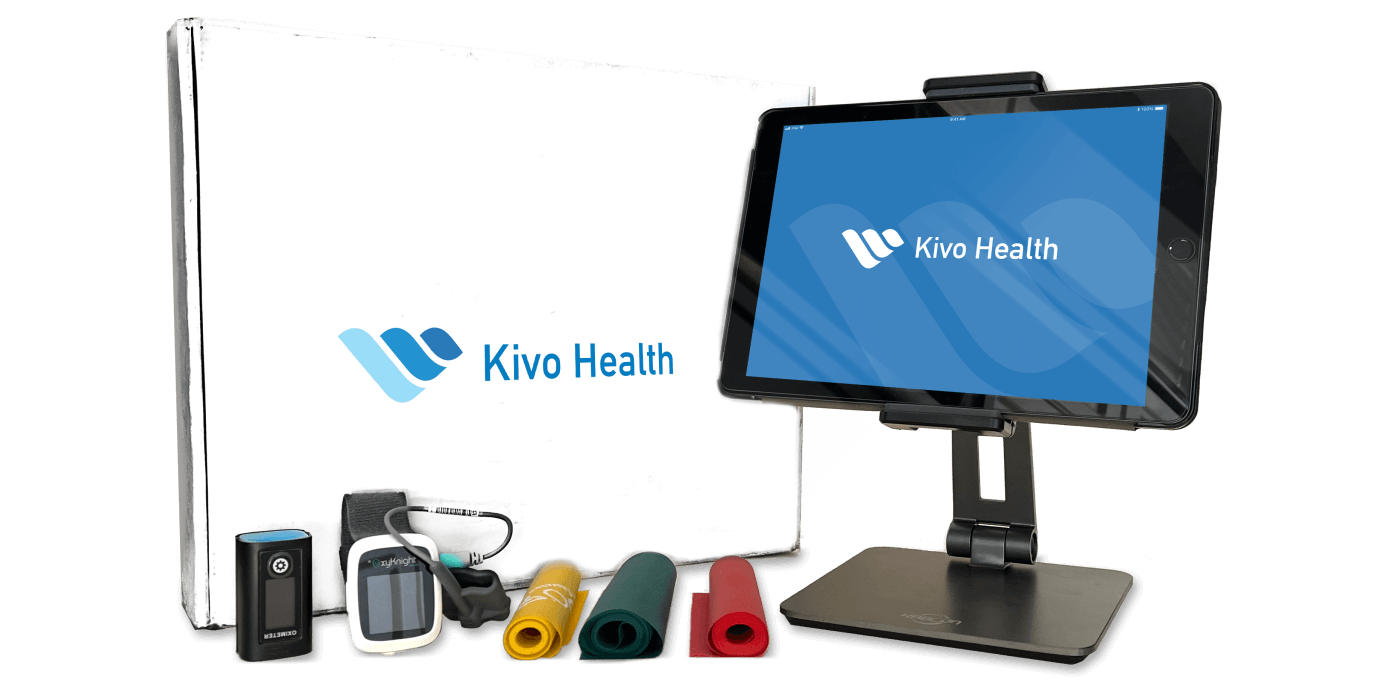Revolutionizing Lung Rehabilitation: Kivo Health's Telehealth Solution
Chronic lung diseases such as COPD affect millions of individuals in the United States, leading to recurrent hospitalizations and significant healthcare expenditures. Pulmonary rehabilitation (PR) has long been recognized as the gold standard for non-pharmaceutical treatment, but only a mere 3% of eligible patients currently have access to this life-changing therapy. Recognizing this critical gap in care, Kivo Health, a San Francisco-based start-up founded in 2021, has developed a telehealth solution that brings PR directly to patients' homes. In this article, we will explore the core problem that Kivo Health aims to solve, how their innovative telehealth program works, and the remarkable impact they have made on patients' lives.

Founders' Vision - Addressing the Access Problem
Victor Sadauskas and Vaughn Koch, the founders of Kivo Health, recognized the profound impact that limited access to pulmonary rehabilitation can have on patients with chronic lung diseases. As an Emergency Medicine doctor at Stanford, Victor witnessed firsthand how poor access to care can result in higher acuity illness over time. Passionate about developing tech-enabled solutions that promote healthier lives while reducing healthcare costs, Victor teamed up with Vaughn, a serial founder and technologist, to establish Kivo Health. In their own words, they outline the core problem they are solving and explain why it is a pressing issue.
Revolutionizing Respiratory Care: Kivo Health Introduces Telehealth Lung Rehabilitation
Kivo Health introduces its groundbreaking telehealth lung rehab program, revolutionizing the way chronic lung disease patients receive care. By leveraging video conferencing technology, Kivo Health offers an 8-week clinical program led by live therapists, enabling patients to receive pulmonary rehabilitation remotely. This approach not only keeps patients out of the hospital but also presents substantial cost savings for payers, estimated at $6,000 per patient, by reducing hospital stays.
The Impact of Chronic Lung Disease
This section delves into the significant impact of chronic lung diseases in the United States. With approximately 16 million people affected, the burden on healthcare systems and the economy is immense, resulting in an annual expenditure of $50 billion due to recurrent hospitalizations. The introduction of PR has shown remarkable clinical outcomes, including reduced hospital bed-days by 62%, cost savings of $6,000 to $10,000 per patient for payers, and improved quality of life for individuals managing chronic lung conditions.
Overcoming Barriers to Access
Kivo Health's telehealth PR program addresses the primary barrier to accessing rehabilitation services—geographical limitations and the physical challenges faced by patients. Many individuals with COPD or other lung diseases struggle with everyday tasks such as climbing stairs, making travel to a PR center twice a week a daunting endeavor. Moreover, transportation and associated costs further hinder their ability to access care. Kivo Health's solution eliminates these barriers by delivering PR directly to patients' homes via telehealth, ensuring comfort and convenience while maintaining the effectiveness of the therapy.

The Kivo Health Experience
In this section, we explore how Kivo Health's telehealth program operates. Patients receive a Kivo Kit, including a cell-connected iPad, a Bluetooth pulse oximeter, and exercise equipment, enabling them to actively participate in the program from the comfort of their homes. Under the guidance of skilled respiratory therapists, patients engage in live video sessions twice a week for two months. During these sessions, the therapists monitor patients' real-time pulse oximetry, facilitate exercises to improve lung function, teach vital breathing techniques, and provide education on managing their lung condition effectively.
The Power of Kivo Health's Approach
Kivo Health's telehealth program has already demonstrated its transformative power by positively impacting the lives of patients. The following stories highlight the real-world impact of their innovative approach:
Empowering Correct Inhaler Use: One patient shared her experience of using her inhaler incorrectly for over 20 years until she learned the proper technique through Kivo Health's program. By providing clear instructions and personalized guidance, Kivo Health empowered her to manage her medication effectively, leading to improved symptom control and a better quality of life.
Patient Advocacy: Another patient was so impressed with Kivo Health's program that she wrote a letter to her pulmonologist, urging him to refer all his patients to their telehealth lung rehab. Her enthusiasm and advocacy demonstrate the positive impact Kivo Health has had on her journey toward better health and inspire others to embrace this innovative approach.
Early Intervention and Prevention: During one of Kivo Health's initial cohorts, a patient experienced the early signs of a lung exacerbation. Recognizing the symptoms she had learned from Kivo Health's education program, she immediately sought medical assistance and received a course of steroids. This proactive response prevented the exacerbation from worsening and potentially leading to costly hospitalization. The patient's ability to identify and manage her symptoms showcases the empowerment and knowledge gained through Kivo Health's telehealth program.
The Future of Kivo Health
Kivo Health's innovative telehealth solution for lung rehabilitation has the potential to revolutionize the field of respiratory care. As they continue to expand their reach and impact, several exciting possibilities lie on the horizon:
Increasing Accessibility: Kivo Health aims to reach a larger portion of the 16 million individuals affected by chronic lung diseases in the United States. By leveraging telehealth technology, they can extend their services to underserved areas and populations, overcoming geographical limitations and transportation barriers.
Collaborations and Partnerships: As Kivo Health grows, forging strategic partnerships with healthcare organizations, insurance providers, and pulmonologists will be crucial. By aligning with key stakeholders in the healthcare ecosystem, Kivo Health can amplify its reach and ensure that more patients have access to their life-changing telehealth lung rehab program.

Research and Data-driven Approach: Kivo Health recognizes the importance of data collection and research to validate the efficacy and impact of its telehealth program. By conducting rigorous studies and collecting patient outcomes, they can demonstrate the value of their approach, leading to broader acceptance and adoption within the medical community.
Expansion to Other Respiratory Conditions: While Kivo Health initially focused on chronic obstructive pulmonary disease (COPD), the potential for their telehealth rehabilitation model extends to other respiratory conditions such as asthma, pulmonary fibrosis, and bronchiectasis. By expanding its program to address a broader range of lung diseases, Kivo Health can make a significant impact on the lives of even more patients.
Conclusion
Kivo Health's telehealth lung rehab program offers a groundbreaking solution to the longstanding problem of limited access to pulmonary rehabilitation. By leveraging technology and bringing care directly into patients' homes, Kivo Health has created a transformative experience for individuals living with chronic lung diseases. With a focus on personalized guidance, education, and exercises, they empower patients to better manage their conditions, reduce hospitalizations, and improve their overall quality of life.
As Kivo Health continues to grow and make a profound impact, their commitment to innovation, accessibility, and patient empowerment will shape the future of respiratory care. Through collaborations, research, and expanding their reach to additional respiratory conditions, Kivo Health has the potential to revolutionize the healthcare landscape, making lung rehabilitation accessible and transformative for all those in need.

